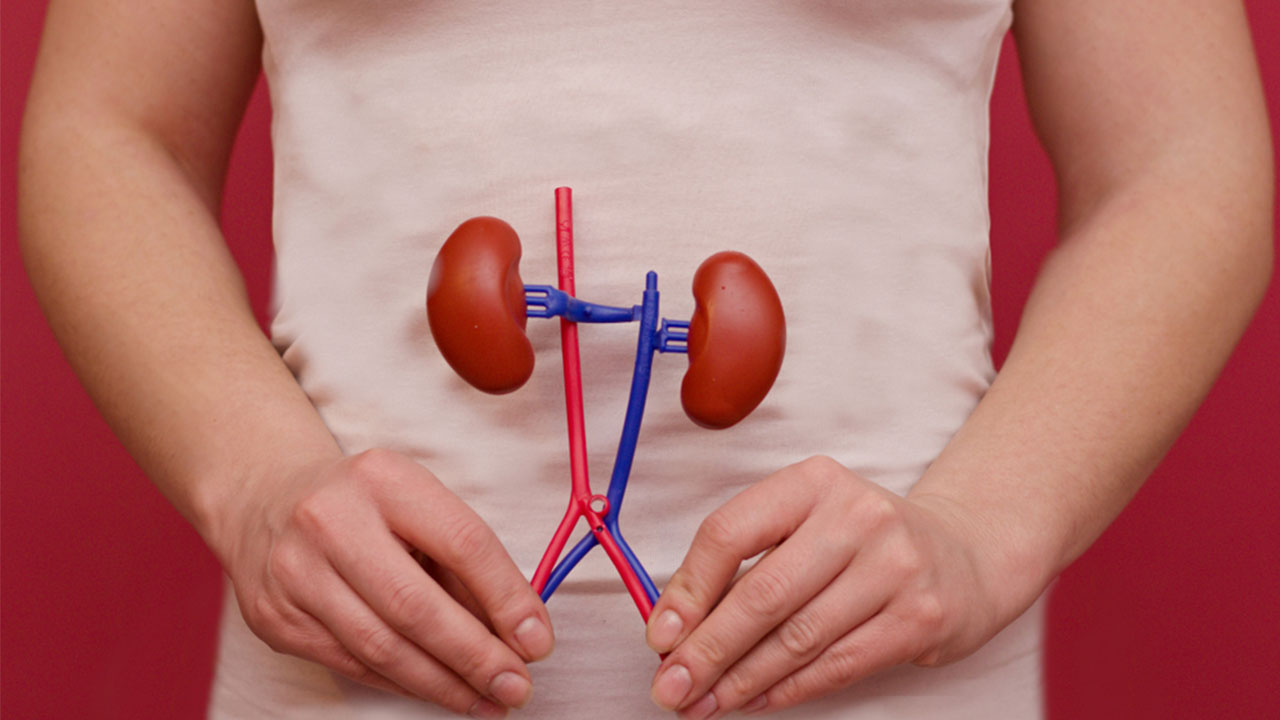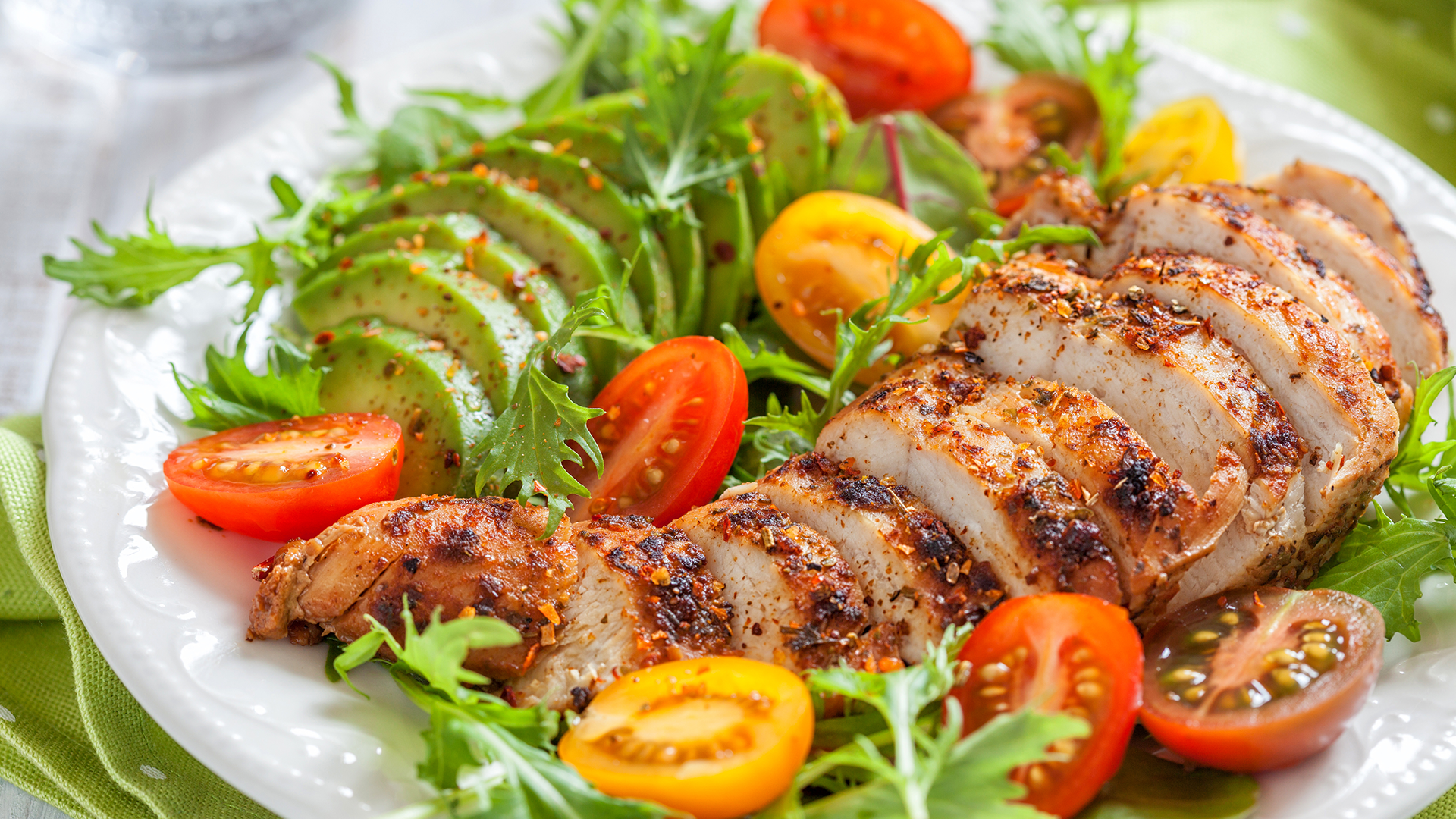The Kidney Flush Diet: Natural Ways to Cleanse Your Kidneys
 By: by Amino Science
By: by Amino Science

If you've looked into a liver detox diet or a salt water flush for your colon, you may well be interested in helping the other key component when it comes to waste removal from the body: your kidneys. The kidneys process up to 200 quarts of blood each day, removing waste products along with enough excess water to wash it all away. They also produce three key hormones: renin for regulating blood pressure, calcitriol which helps regulate calcium (as it's a form of vitamin D), and erythropoietin which is needed to stimulate new red blood cell production in the bone marrow. Your kidneys are vital to your survival, and if you want to help them do their job, you may want to try a kidney cleanse. This article provides the reasoning behind a kidney flush diet and which foods best benefit these twin organs.
Kidney Function
Your kidneys are two bean-shaped organs just under your rib cage in your lower back. Along with the liver, they help detox your body and remove waste from your bloodstream, everything from the normal detritus of cellular breakdown and synthesis, to toxins that should never have come to your body in the first place. Kidney health is incredibly important, because you cannot live without the work that they do.
What follows are the ingredients for the kidney flush diet, foods and beverages that contain nutrients especially valuable to kidney health. On top of that however, remember that hydration is the name of the game when it comes to your kidneys: without enough water, the waste kidneys help filter out becomes backlogged and can lead to kidney infection, kidney stones, chronic kidney disease, and even kidney failure and the need for a kidney transplant.
In fact, the cause of kidney stone formation is when substances like oxalate, calcium, and uric acid form into crystals because there isn't enough fluid available to dilute them and flush them out. To found out how to flush kidney stones naturally and which nutrients help inhibit kidney stone formation, read on.

The Kidney Flush Diet
The first ingredient in a kidney flush diet is always plenty of water—our bodies are made of nearly 60% water, and it's needed for everything from brain to blood to every organ in between, including and especially for kidney function. After you've got a few glasses of water in you, you'll want to try these other foods that contain natural kidney health support. Let's see how they work.
Kidney-Cleansing Foods
Here are the front-runner foods for kidney-boosting nutrients.
1. Cranberries
Cranberries are well-known for being beneficial to the bladder and urinary tract. Not only can they help cure urinary tract infections (UTIs), but they can also help prevent them, and that benefit extends to the kidneys as well.
This study from 2013 found that sweetened, dried cranberries consumed over a 2-week period reduced incidents of UTIs, thus helping to protect the kidneys from a spreading UTI infection.
Include dried cranberries in a salad, a trail mix, or a dessert, and you'll be doing your kidneys a favor.
2. Seaweed
Brown seaweed can benefit the kidneys, the liver, and the pancreas too. A 2014 study showed that rats who were fed seaweed for 22 consecutive days had reduced levels of damage from diabetes in both their livers and their kidneys.
A little dried seaweed can be eaten as a snack any time, a savory bit of crunch you can easily keep in your pantry, your car, or your desk at work.
3. Grapes
Grapes (along with certain other berries and peanuts) contain resveratrol, the plant compound that makes a glass of red wine beneficial to your heart health. It turns out, as this 2016 study shows, that resveratrol can act as an anti-inflammatory agent in treating polycystic kidney disease.
A baggie of grapes can be easily tossed into your lunch box, or you can freeze your grapes, preserving them longer and turning them into a fun summer treat.
4. Foods with Calcium
What does calcium have to do with your kidneys? Calcium binds with oxalate in the kidneys, preventing it from forming into kidney stones. While it's true that too much of either one and not enough water intake to dilute them can form kidney stones, high-calcium foods like tofu, almond or soy milk, and fortified breakfast cereals help to balance out the minerals in your kidneys and reduce the risk of kidney stone formation.
5. Beets
Beets are rich in nitric oxide, which not only helps to cleanse the blood, but also contributes to kidney function. The Indian Journal of Nephrology published a 2015 study that revealed a lack of nitric oxide is a contributor to kidney damage, so getting a sufficient amount helps act as kidney support.
Kidney-Cleansing Drinks and Teas
Drink to your kidneys with these kidney-cleansing beverages.
1. Fruit Juices
If you're wondering how to flush out kidney stones fast, fruit juices might be the answer. Not all kidney stones can be passed safely, so if you suspect you have a kidney stone (the pain will make itself very clear), get medical advice before trying to deal with it on your own.
If it is a matter of naturally passing the stones, melon, lemon, and orange juice can help prevent kidney stones from forming in the future by providing citrate (which can bind with calcium). Increasing your fluid intake also helps clear out kidney stones as quickly as possible.
Make a habit of drinking a glass of fresh juice each day and you'll be doing your kidneys a great service.
2. Hydrangea Tea
Hydrangeas are not just for landscaping. Those beautiful blooms can also help your kidneys. A 2017 animal study found that subjects given Hydrangea paniculate extract for just 3 days gained more protection from kidney damage, a benefit attributed by researchers to the antioxidant content of the plant.
3. Sambong Tea
A tropical shrub originating from India and the Philippines, sambong (Blumea balsamifera) is a medicinal plant that has been scientifically shown to decrease the size of calcium oxalate crystals, meaning it could help prevent kidney stone formation.
Kidney-Cleansing Supplements
Here are the key nutrients you may want to focus on supplementing with for a kidney flush.
1. Vitamin B6
Vitamin B6 is needed to metabolize glyoxylate into glycine. If there isn't enough vitamin B6 available, glyoxylate may become oxalate instead, and too much oxalate can lead quickly to kidney stones and block urine flow.
2. Omega-3 Fatty Acids
Most American diets are far too high in omega-6 fatty acids, and extremely low in omega-3s. Researchers have found evidence that too high omega-6 levels could lead to kidney stone formation. To correct that ratio, a reduction of omega-6 foods (anything fried in or containing vegetable oils) and an increase of omega-3s is needed. Omega-3 fatty acids can be gained from eating oily fish like salmon or mackerel, or by taking a high-quality fish oil supplement containing both EPA and DHA.
3. Potassium Citrate
Not only can potassium citrate help reduce kidney stone formation, but it also aids in balancing the pH content of your urine. Potassium is also needed to control the electrolyte content of your urine.
Be Kind to Your Kidneys
Your kidneys filter your blood, and one of the best ways to nurture healthy kidneys is to make sure you eat well and avoid gumming up the works as much as possible. Those with kidney troubles might have been warned away from a high-protein diet. Taking an essential amino acid supplement can provide the building blocks of protein without putting undo stress on your kidneys.
Should you have a medical condition that makes kidney function more difficult, consult with a trusted health professional about these and other natural remedies to protect two of your most vital organs.

Up to 25% off Amino
Shop NowTAGS: diet plans
Join the Community
Comments (0)
Most Craveable Recipes




 833-264-6620
833-264-6620



















